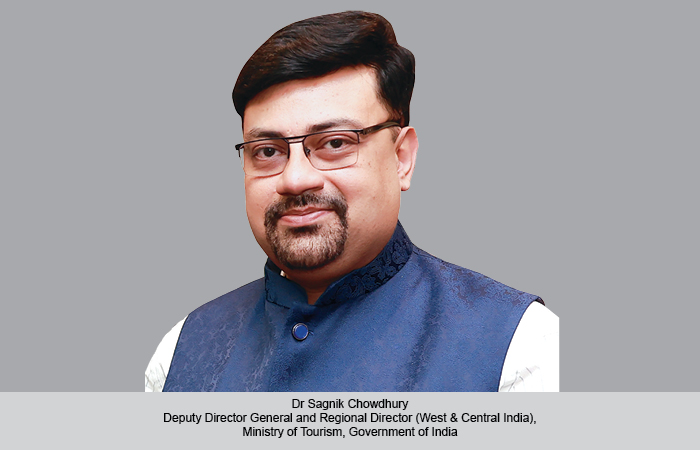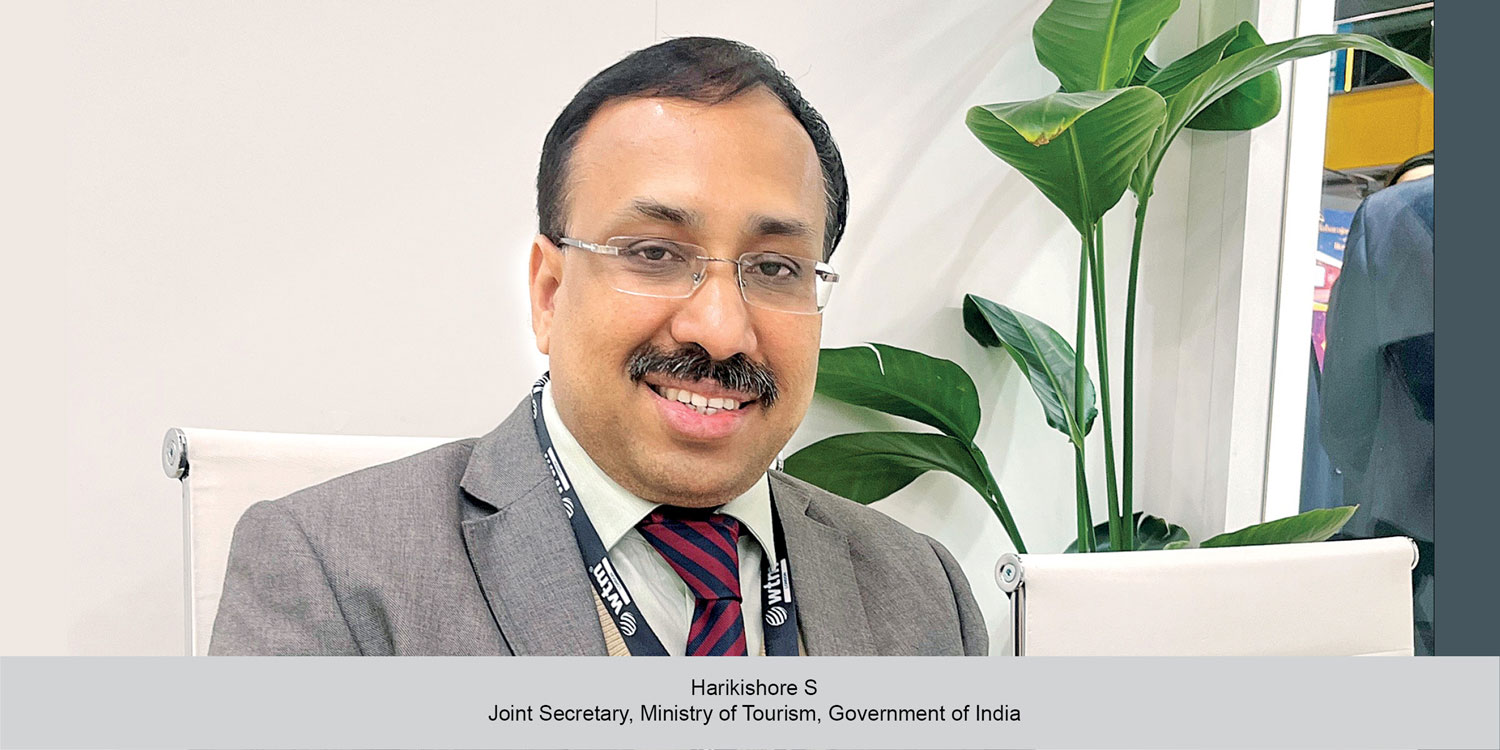Indiatourism has been making an effort to map a few chosen destinations as a pilot project and create a bank of tourism assets at these places to make them friendlier for tourists. Dr Sagnik Chowdhury, Deputy Director General and Regional Director (West & Central India), Ministry of Tourism, Government of India, sheds lights on the government’s 100-day programme.
Hazel Jain
The Ministry of Tourism (MOT) under the government’s 100-day programme has decided to make India’s tourism destinations friendlier for tourists. Under a pilot project, seven destinations across the country have been identified for this purpose. These destinations are Srinagar in Jammu and Kashmir, Jodhpur in Rajasthan, Aizawl in Mizoram, Bodh Gaya in Bihar, Orchha in Madhya Pradesh, Gandikota in Andhra Pradesh and Port Blair in Andaman and Nicobar Islands.
Guest of Honour at the India Travel Awards 2024, held recently in Mumbai, Dr Sagnik Chowdhury, Deputy Director General and Regional Director (West & Central India), Ministry of Tourism, Government of India, said, “Our primary motive across these seven destinations is to identify and map stakeholders, different types of stakeholders who can be then trained, not only in the trade that they practice, but also give them training about certain trades that they can pick up. This is for people who are not introduced to the tourism field yet in these destinations.”
Simultaneously, MOT is also trying to map all the tourism assets that these places have. These could be tourism products in terms of natural heritage and cultural heritage, which could be tangible or intangible. “We are trying to map all of these and create a bank of tourism assets at these places. We are also trying to look at new tourism products and identify them. For this purpose, the ministry is working closely with the state governments, not only to deliver in a time-bound manner, but once found successful, this model to be replicated in over 1,000 destinations across the country in the months to come,” he explained.
This seems like an intense project. In the west central region, Orchha is the place that has been selected for the prototype. “For mobilisation of youth and women, the programme is called ‘Paryatan Mitra’ and the ‘Paryatan Didi’ project, wherein we are trying to bring more and more people on the organised mainstream tourism platform by enabling them, by building their capacity, by skilling them and then also mapping the various tourism products where they can be found useful and where they could contribute with whatever skill sets and aptitude they have.”
Programme has flexibility
Dr Chowdhury said, “We are giving FOSTAC training to food handlers in various wayside amenities, restaurants, eateries, and hotels across the region. We are focusing on various people who are not otherwise certified. There is a lot of potential in these places and that is how they have been selected as the prototypes. It is, however, important to understand that the programme does not end in 100 days. In fact, we are only creating a prototype, we are only creating a platform based on which we are going to build further. Thousands of more destinations are going to come up in the following months based on the model that will be exercised during this prototype building.”
Sustainability and stakeholders
Hoteliers and tour operators can be great drivers of sustainability, Dr Chowdhury said. “In order to leave the legacy, that we have enjoyed for years, for our children, it is important to look at sustainability not only from the point of environmental sustainability but also social, cultural and community-based sustainability. In fact, it is extremely important for us to make our communities resilient to all kinds of change. Destinations, as well as tour operators and travel agents, can also participate in sustainability initiatives. It is with this idea that stakeholders across the board, tour operators, travel agents, hoteliers, tourist transport operators, adventure tour operators, can all be major stakeholders in the green initiative that the ministry has launched its ‘Travel for LiFE’ campaign where life signifies lifestyle for environment,” he added.
Let us look at a small microcosm – let’s talk about tourist transport operators. “It is extremely important that their vehicles comply with the latest sustainable norms, possibly they could be electric vehicles, and possibly make the place eco-friendly in terms of plastic use. We need to be pervasively active and that is where all our stakeholders come in. They build that ecosystem wherein we can make our environment safer and better,” he said.
 TravTalk India Online Magazine
TravTalk India Online Magazine





